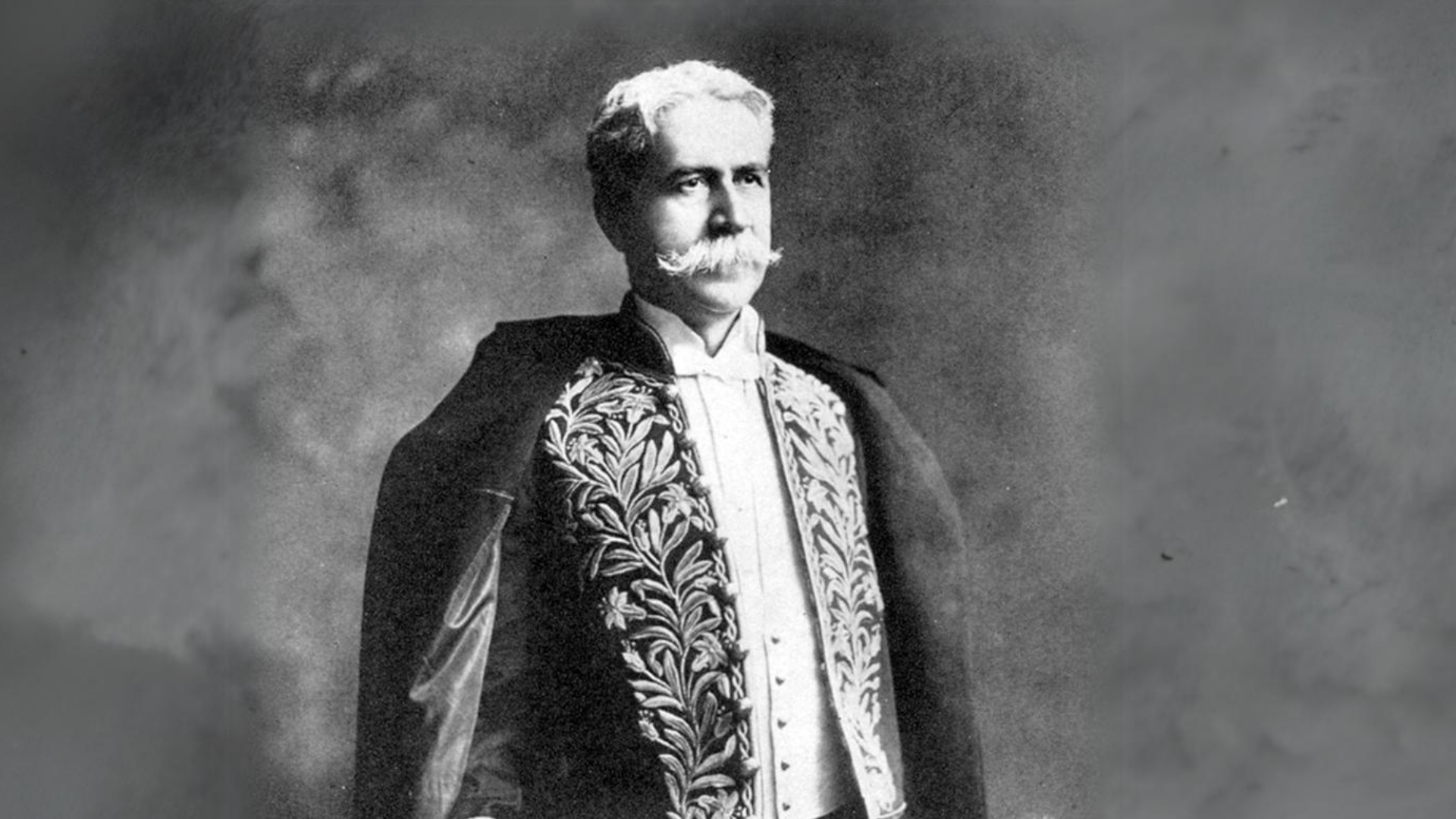The importance of Joaquim Nabuco in Brazil during the 19th and early 20th centuries is quite evident, as his actions played a crucial role in the abolition of slavery. He is the author of famous yet curiously lesser-known works such as “Abolitionism” and “My Formation.” Joaquim Aurélio Barreto Nabuco de Araújo was born in Recife on August 19, 1849, and died in Washington, United States, on January 17, 1910. Nabuco was a Brazilian politician, diplomat, historian, jurist, orator, and journalist who graduated from the Law School of Recife. He was one of the founders of the Brazilian Academy of Letters. On his birth date, August 19, the National Day of the Historian is celebrated.

In this analysis, we find insights into how Nabuco viewed the republic in Brazil and how he held onto his monarchist thinking. Through his perspective, we see current grievances about a republic that fails to achieve the stability that the previous regime had attained, which is why he admires it so much. This is observed in the author’s works “The Duty of Monarchists” and “Why I Remain a Monarchist,” which will be used to comprehend Nabuco’s mindset.
The work “The Duty of Monarchists” was a letter written by Joaquim Nabuco in 1895 to Admiral Jaceguay, in which he strongly advocates for Constitutional Monarchy as a form of government. In this letter, Joaquim Nabuco responds to a question posed by Admiral Jaceguay about his persistence as a monarchist after the fall of the monarchy in 1889. Nabuco provides a sincere answer, emphasizing his profound love for Brazil. He addresses racial issues, comparing the situation of Black people in the United States, the Empire of Brazil, and European monarchies. Nabuco exposes the racism faced by Black people in the United States and highlights their challenging social advancement in the “great Republic of the North.”
Nabuco asks: “(…) In the United States, would it be possible for a mulatto, no matter his genius, to reach the position of literary royalty? (…)” – here, he makes a reference to Machado de Assis.
With the reading of the letter, it is possible to notice that in Imperial Brazil, there was a notable social ascent of Black and mixed-race individuals in various areas, including journalism, literature, law, politics, engineering, medicine, education, science, and religion. During the Second Reign, there were no insurmountable barriers to the recognition of talent and brilliance, as evidenced by examples such as Machado de Assis, André Rebouças, José Maria da Silva Paranhos, Eusébio de Queiroz, and other members of the mixed-race middle class who are acknowledged even today.
Furthermore, Joaquim Nabuco addresses not only the social but also the political virtues of the Monarchy in the letter. In one passage, he writes:
“(…) I am certain that the beneficial function of the monarchy in Brazil was this: discovery, conquest, settlement, Christianization, construction, cultivation, organization, coastal defense, expulsion of foreigners, territorial unification and preservation; administration, stability, perfect internal order; independence, political unity, parliamentary system, sense of freedom, Brazilian character’s pride, press inviolability, strength of opposition, minority rights; skill, aptitude, administrative morality; disinterested political vocation; credit, reputation, civil equality among races, peaceful abolition of slavery; military glory, renunciation of the right to conquer, international arbitration; the strongest literary and scientific culture in Latin America; finally — as the realized ideal of ancient democracy, the government by the best man – a Periclean reign of half a century.”
In “The Duty of Monarchists,” Joaquim Nabuco praises the monarchical federal system for providing political stability to Brazil for over half a century. He argues that the federation was feasible under the Monarchy since the Head of State had no interest in undermining the autonomy of the provinces for the sake of their successor or party, unlike the presidents in the Republic. Nabuco concludes the letter with a thoughtful and truthful reflection.
“(…) I know that the restoration of the monarchy is as difficult as the restoration of religion, family, and society in politics. However, nothing is rarer than the ability to discern what is dead from what is merely interrupted. Who knows by what mysterious renewal a plant might not be passing under the Brazilian earth, the plant that for so long gave it shade?”
Joaquim Nabuco believed, as seen in his thoughts in “Why I Continue to Be a Monarchist,” that the parliamentary monarchy could only have, as its revolutionary successor, military dictatorship when its legitimate evolutionary successor was civil democracy. He thought that the republic in Brazil would be the pseudo-republic it is throughout Latin America, since the time when Joaquim Nabuco lived. Nabuco already reported, before writing “Why I Continue to Be a Monarchist,” that the republic could not function as a free government and that, from the day it was proclaimed, the confidence that the Empire of Brazil took so many years to acquire would disappear, and the freedom within the law of the Empire was untouchable.
Nabuco states: “I once expressed in the Chamber, a phrase I only recall because it had the honor of being commented on in the Senate, that in Brazil, it took more courage to declare oneself a monarchist than a republican. I was not referring to the tolerance or preference of the monarchy by the republicans, but to the difficulty of upholding an institution visibly weakened by the skepticism of those who served it, against another that appeared to have faith.”
The complaint about the republican political system leaves anyone astonished when Nabuco makes it clear that, in his view, it involved long imprisonments without due process, deportations, and banishments due to political influence. Additionally, he asserts that in the Latin American countries, a republic is a government where it is essential to give up freedom to attain order.
Based on Joaquim Nabuco’s texts, we can observe that we have not had political stability since the inception of the republican system in our country. We see a monarchist who refuses to become a republican due to having no hope for freedom. Remembering that Nabuco’s two works are responses to other people who challenged his monarchist thinking even after the end of the regime in Brazil. Are there still people nowadays who can disagree with Joaquim Nabuco’s texts and prove that the solution for Brazil might be found in past and current reforms of our presidential system?
Reference: NABUCO, Joaquim. O Dever dos Monarquistas. Brazil: Typ. Leuzinger, 1895.
NABUCO, Joaquim. Porquê Continuo A Ser Monarquista. Brazil: Patris Editora, 2022.

Matheus Araújo
Matheus Araújo is the founder and editor of Brazilian History. Born in Rio de Janeiro and holding a degree in Advertising and Marketing, his passion for history led him to enroll at the Federal University of the State of Rio de Janeiro, where he is currently pursuing a degree in History Education.
